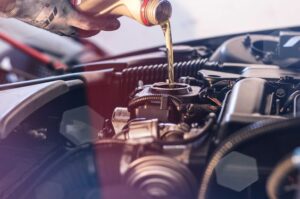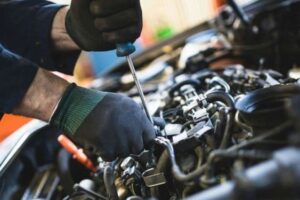Car maintenance is a crucial aspect of owning a vehicle. Neglecting regular maintenance can lead to costly problems affecting the performance, fuel efficiency, and safety of your car.
Neglecting car maintenance can lead to a host of issues, including engine problems, decreased fuel efficiency, safety hazards, and electrical malfunctions. These problems can have serious consequences and impact both your wallet and your safety on the road.
Engine Issues:
Failing to keep up with regular oil changes and ignoring warning signs can lead to serious engine problems, like overheating, poor performance, and even complete breakdowns. Make sure to schedule regular oil changes, check coolant levels, and promptly address any warning lights or unusual noises.
Decreased Fuel Efficiency:
Lack of maintenance can lead to decreased fuel efficiency, costing you more money in the long run. To avoid this issue, regularly check and replace air filters, maintain proper tire pressure, and ensure spark plugs are still sparking at an optimum.
Safety Hazards:
 Neglected car maintenance can pose safety risks for both the driver and other road users. Worn-out brakes, faulty lights, or bald tires can increase the chances of accidents. To address these safety hazards, regularly inspect and replace brake pads, check and replace faulty lights, and monitor tire tread depth.
Neglected car maintenance can pose safety risks for both the driver and other road users. Worn-out brakes, faulty lights, or bald tires can increase the chances of accidents. To address these safety hazards, regularly inspect and replace brake pads, check and replace faulty lights, and monitor tire tread depth.
Electrical Problems:

Ignoring electrical issues, such as malfunctioning ignition coils, electronic control units or a dead car battery, can leave you stranded or compromise your vehicle’s functionality. Remember to regularly check for diagnostic faults, ensure the battery is in good condition, and address any other malfunctions promptly.
To save cost on auto repair, you generally want to protect and preserve your car to avoid any potential breakdowns. Here are some tips that may be useful for you:
- Follow the maintenance schedule from your workshop or authorised dealer. This includes oil changes, filter replacements, and other routine inspections.
- Avoid aggressive driving, including rapid acceleration, hard braking, and excessive speeding. These activities can put unnecessary strain on your car’s engine, brakes, and other components.
- Keep your car clean: regularly washing and waxing your car helps protect its paint and prevents rust and corrosion. Additionally, cleaning the interior and vacuuming regularly can prevent dirt and debris from causing damage to the upholstery and carpeting.
- Park in a shaded area: doing this can protect it from the damaging effects of the sun’s UV rays. Excessive exposure to sunlight can fade the paint, crack the dashboard, and wear down rubber seals.
- Check and maintain proper tire pressure, as under-inflated or overinflated tires can lead to uneven wear, reduced fuel efficiency, and compromised handling. Regularly check your tire pressure and inflate or deflate them to the recommended levels.
- Avoid overloading your car as excessive weight can strain your car’s suspension, brakes, and engine. Avoid carrying unnecessary items in your car and adhere to the recommended weight limits specified by the manufacturer.
- Use high-quality fuel and fluids: good engine oil, coolant, and transmission fluid help maintain your car’s performance and efficiency. Follow the manufacturer’s recommendations for the appropriate types and grades of fluids to use.
- Store your car properly: If you need to store your car for an extended period, take proper precautions. Clean the car, fill up the fuel tank to prevent moisture buildup, and use a car cover to protect it from dust and debris.

Regular car maintenance is essential for the optimal performance, fuel efficiency, and safety of your vehicle. By following the provided solutions, conducting regular inspections, and adhering to the maintenance schedule, you can ensure the longevity of your car and avoid costly repairs. Prioritise car maintenance to enjoy a smooth and safe driving experience.




